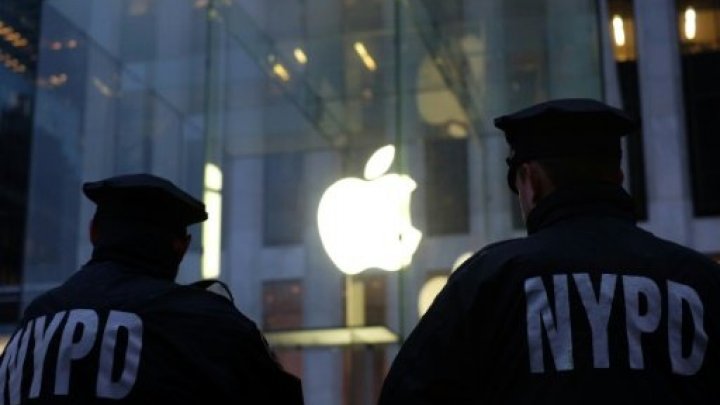FBI chief James Comey on Tuesday defended his agency’s efforts to force Apple to help unlock an iPhone in the San Bernardino attacks probe.
Testifying at a congressional hearing on encryption and privacy where lawmakers voiced concerns about a harmful precedent, Comey said law enforcement’s job may be crippled by “warrant-proof spaces” that become inaccessible to investigators.
Addressing a case that has set off a fierce public debate, Comey said Americans need to know the safety implications if encryption makes it impossible to access data on smartphones and other devices.
“It’s our job to tell the American people the tools we use to keep you safe are becoming less effective,” Comey told the House Judiciary Committee hearing.
“If there are warrant-proof spaces in American life, what does it mean? What are the costs?”
But Comey also acknowledged that forcing Apple to help unlock the San Bernardino shooter’s iPhone could set a precedent for other investigations.
“It is going to be potentially precedential, that’s just the way the law works,” he said in response to a question from Representative John Conyers, Democrat of Michigan.
The hearing comes amid an intense legal and political battle after Apple said it would challenge a court order to provide the FBI technical assistance to help break into the San Bernardino iPhone.
Apple has argued the FBI is effectively asking the company to “hack” its own devices and create a “back door” that could be exploited by malicious actors.
Comey told the hearing that in his view, “it’s not about back doors… there’s already a door on that phone, we’re asking Apple to take away the vicious guard dog.”
Citizens’ rights are protected by an independent judiciary, he added, citing a longstanding principle that “if an independent judge finds reason to believe that certain private communications contain evidence of a crime, then the government can conduct a limited search.”
Lawmakers from both parties appeared skeptical of the FBI efforts, questioning whether they could lead to weaker overall security in the future for new technologies.
“It won’t really be a one-time request? It will set a precedent for the FBI and other law enforcement agencies?” the committee chairman, Virginia Republican Bob Goodlatte, asked.
He also questioned whether Apple’s creation of new software would “fall into the wrong hands and make everyone less secure.”
Conyers said meanwhile that the FBI’s legal efforts could be seen as “an end run” around the legislative process to step up its access to encrypted devices.
“I would be deeply disappointed if it turns out that the government is exploiting a national tragedy to pursue a change in the law,” he said.
“This committee and not the courts is the place to consider the appropriate consequences.”
In remarks prepared for the same hearing, Apple general counsel Bruce Sewell said the public should understand that “encryption is a good thing, a necessary thing” even if it makes the work of law enforcement more difficult.



































